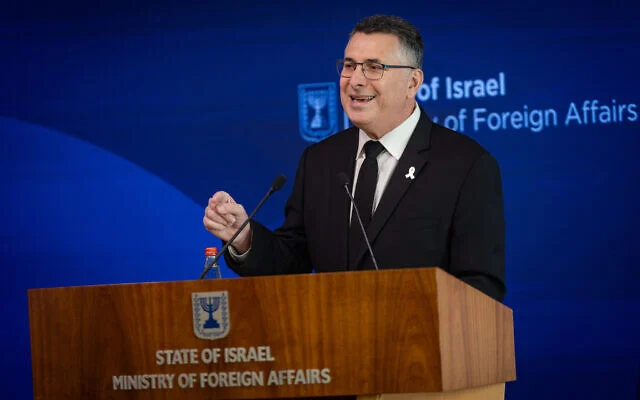Israel Warns Europe That Palestine Recognition May Be Met with West Bank Annexation
In a significant diplomatic development, Israel has issued stern warnings to European nations considering the recognition of Palestinian statehood. Israeli officials have indicated that such unilateral moves could compel Israel to annex parts of the West Bank, notably Area C, and legitimize unauthorized settlements. This stance emerges as countries like France and the UK deliberate over formal recognition of Palestine, potentially reshaping Middle Eastern geopolitics.
1. Israel’s Firm Stance on Unilateral Recognition
Israeli ministers, including Strategic Affairs Minister Ron Dermer and Foreign Minister Gideon Sa’ar, have conveyed to European counterparts that any unilateral recognition of a Palestinian state would be met with reciprocal actions from Israel. These actions could involve the annexation of Area C in the West Bank and the legalization of existing outposts.
Dermer specifically warned French Foreign Minister Jean-Noel Barrot and British Foreign Secretary David Lammy about potential Israeli responses. Similarly, Sa’ar emphasized that unilateral moves against Israel would prompt unilateral Israeli actions, signaling a readiness to extend sovereignty over contested regions.
2. European Nations Contemplate Recognizing Palestinian Statehood
France, under President Emmanuel Macron, is reportedly considering recognizing Palestinian statehood, aligning with a broader European discourse on the matter. This potential shift coincides with an upcoming United Nations conference co-hosted by France and Saudi Arabia, aimed at establishing a framework for Palestinian statehood while ensuring Israel’s security.
While some European countries, like Germany, Hungary, and the Czech Republic, have expressed reservations about unilateral recognition, others, including Spain and Malta, have shown support. The UK’s position remains cautious, balancing international obligations with domestic considerations.
3. Potential Consequences of West Bank Annexation
Annexing parts of the West Bank, particularly Area C, would have profound implications. Area C constitutes approximately 60% of the West Bank and is home to numerous Israeli settlements. Internationally, such a move could be perceived as a violation of international law, further straining Israel’s diplomatic relations.
Moreover, annexation could exacerbate tensions with the Palestinian population, potentially leading to increased unrest and undermining prospects for a two-state solution. The international community, including the European Union, has previously warned against unilateral annexation, suggesting it could lead to sanctions and a reevaluation of bilateral relations.
4. International Reactions and Diplomatic Strains
The international community has responded with concern to Israel’s warnings. Sweden, for instance, summoned the Israeli envoy over issues related to Gaza aid, reflecting broader apprehensions about Israel’s recent policies.
Additionally, incidents such as Israeli soldiers firing near diplomats in the West Bank have heightened tensions, leading to condemnations from countries like Canada, the UK, France, Italy, and Portugal. These events underscore the fragile state of Israel’s diplomatic relations amid ongoing conflicts and policy decisions.
5. The Broader Geopolitical Landscape
The discourse around Palestinian statehood and Israeli annexation plans is set against a backdrop of escalating conflicts and shifting alliances. The humanitarian crisis in Gaza, coupled with internal political challenges within Israel, adds complexity to the situation.
Furthermore, the upcoming UN conference co-hosted by France and Saudi Arabia could serve as a pivotal moment in international efforts to address the Israeli-Palestinian conflict. The outcomes of this conference may influence future diplomatic strategies and the feasibility of a two-state solution.
Conclusion
Israel’s warnings to European nations contemplating the recognition of Palestinian statehood mark a critical juncture in Middle Eastern diplomacy. The potential annexation of West Bank territories poses significant risks to regional stability and international relations. As global actors navigate this complex landscape, the emphasis must remain on dialogue, adherence to international law, and the pursuit of a sustainable resolution to the Israeli-Palestinian conflict.
Subscribe to trusted news sites like USnewsSphere.com for continuous updates.
[USnewsSphere.com / nn]





